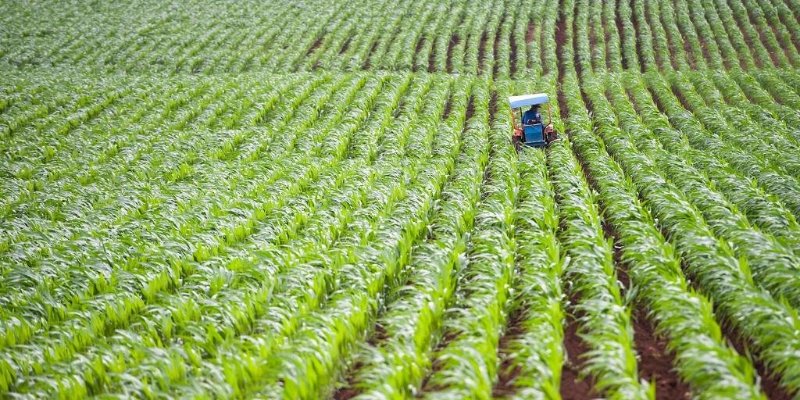Sustainability is at the forefront of modern agriculture. Sustainable agriculture practices seek to produce food, fibers, building materials, and medicines without compromising the environment. Conventional farming techniques impact the environment destructively, as through such activities as excess tilling, which can erode and destroy viable agricultural land.
What are sustainable farming practices?
Aspects of sustainability include social responsibility, the economic security of the farm, and proper management of waste streams.
Soil Sustainability
Because conventional tilling erodes soil at twice the rate that soil is able to rebuild itself, a movement to reduce tillage has spread worldwide. Experts encourage farmers to adopt better management practices to improve sustainability, such as by reducing tillage and planting cover crops. Cover cropping through winter months reduces the loss of beneficial microorganisms and provides a rich organic fertilizer in the spring.
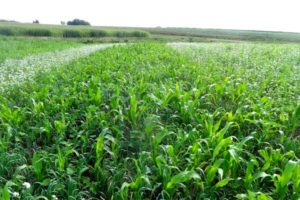
Organic Fertilizers
Reducing dependency on chemical-based fertilizers protects the environment and the economic independence of farmers. Chemical nitrate fertilizers wash into lakes and streams, where they poison wildlife and drinking water. Waste streams from animal production, cover crops, and other available biomass can when handled strategically, be utilized as organic resources for crop fields.
Water Management
The benefits of good water management speak to the advantages of sustainable agriculture. Farmers capture rainwater and runoff, thereby conserving ground water and reducing stress on crops during periods of drought. Drip-line and trickle irrigation reduce water consumption. Mulching retains moisture in the soil that would otherwise evaporate if left bare. Farmers save money, protect clean drinking water, and make use of localized resources.
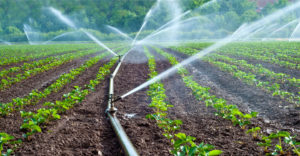
Pesticides and Herbicides
Sustainable agriculture seeks to reduce the use of chemical pesticides and herbicides on commercial fields. These chemicals are harmful to soil biota, wildlife, and human beings. While excess tillage leads to soil compaction and weed problems, cover cropping and winter mulch systems reduce weeds organically while building soil and making use of waste streams.
Crop rotation is of chief importance in organic pest management. When a piece of land is planted with the same crop annually, pests and disease build up. Crop rotation breaks that cycle.
Polyculture
Monoculture, or planting just one crop in a large field, leads to a vast depletion of soil nutrients as well as vulnerability to pests and diseases. When farmers plant multiple crops together, they create a polyculture, which is far more resilient. Well-planned polycultures include plants which feed each other in the soil and do not compete for dwindling nutrients.
Waste Stream Management
Through better waste management, farms can drastically (and in some cases completely) reduce the amount of toxic waste produced. Animal waste is of particular concern. When allowed to accumulate into manure lagoons, the waste becomes a breeding ground for harmful strains of E. coli. Valuable nutrients become toxins in the anaerobic conditions.
When managed properly, animal waste is an organic fertilizer and a resource. In concentrated anaerobic lagoons, animals waste is toxic to lakes, streams, and farmland. Raising a lower volume of animals on pasture de-concentrates the waste produced so that farmers can compost it aerobically. This process results in useful fertilizer.
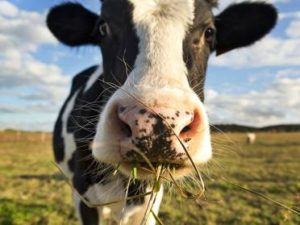
Grazing Practices
Overgrazing is responsible for desertification all over the world. Recent ecological observation and research has provided a surprising solution, however. Proper grazing techniques help to heal the symptoms of overgrazing. These practices consist of intensively managed paddock systems. The animals are moved between paddocks frequently to prevent overgrazing and always kept on fresh pasture.
Silvopasture refers to the practice of planting trees within existing animal paddocks. The trees increase forage, provide shade, and reduce stress in the animals while also producing another resource on the land.
Economic Sustainability
A sustainable farm is economically sound as well as ecologically sound. Many principles that apply to sustainable agriculture also apply to a farm’s economic approach. Diversification of income sources, or a polyculture, will help make a small farm more resilient to unpredictable circumstances that are a part of an agricultural business like stormy weather, pest damage, or loss due to disease. Management of potential waste streams also applies to farm equipment efficiency and optimum performance.
Fossil Fuel Management
Fossil fuels have been the dominant fuel of the last century. Some dependency on them is likely necessary for efficient agriculture, so it’s important to ensure that all equipment is running at peak performance. Because of the ability to run them with biofuels, eco-friendly diesel engines have gained attribution among sustainable farmers.
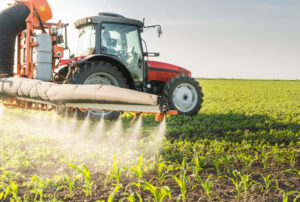
Ecology
Ecological farming is dedicated not only to conserving natural resources and wildlife habitat. It seeks to improve and enrich them. Through modeling farm systems from nature itself, agriculture experts and ecologists work together to create new sustainable agriculture practices. These systems work with their environment to produce resources without compromising the ecological integrity of a region.
Principles of sustainable agriculture include renewability, economic viability, and environmental regeneration. Farmers can use these principles to engineer advanced and diverse agricultural systems. Systems which, when kept to a manageable scale, suit the needs of their land, family, and community. Sustainable agriculture is the only viable future of farming.

